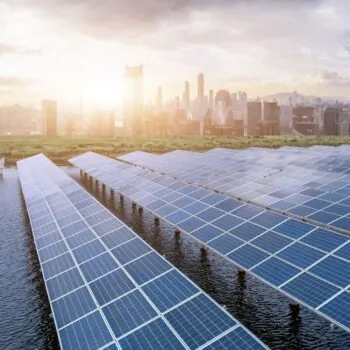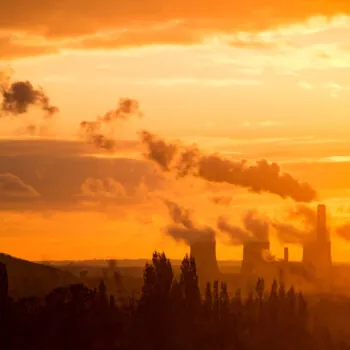At today’s summit at Schloss Elmau, G7 countries have agreed that the decarbonisation of the global economy should be completed by the end of this century; that this requires deep cuts in greenhouse gas emissions; and that this requires a transformation of their own energy sectors by 2050. The G7 communiqué fails to mention any particular fossil fuel, but the implication is clear: there is no future for unabated coal in a world that is acting to avoid dangerous climate change.
Coal use is currently the source of significant emissions from industrial sectors such as steel production. Those industries are now on notice that they will need to reduce their CO2 emissions over the coming decades.
But a transition out of fossil fuels needs to start with where emissions can be reduced most quickly. The electricity sector is now firmly in the spotlight as the arrowhead of a coal phase out effort.
There are two key elements to a coal phase out, both of which are immediately within the grasp of G7 members.
Firstly: turn off the tap of new unabated coal plants.
G7 countries have agreed on the need to decarbonise their energy systems by 2050. Adding new coal plants is incompatible with that objective, a fact that has already been recognised by 6 of the 7 members. Only Japan is persisting with plans to increase coal-fired electricity generation, leaving it isolated among its G7 peers.
Canada, the USA and the UK have all implemented policies that rule out new unabated coal (ie without the inclusion of carbon capture and storage technology). In France, Germany and Italy there is no market appetite for new coal – recent investments by utilities have resulted in massive financial liabilities and are already at risk of becoming stranded assets. Japan needs to learn these lessons, quickly.
Secondly: accelerate the retirement of their existing coal plants.
Old, inefficient, and inflexible coal plants need to be the first to go, as electricity systems shift to more dynamic operations. This retirement effort is already underway to different extents, and at different speeds, across 5 of the G7 members.
The USA has already retired 190 coal units. France has shut 7 units this year, and is now down to its last 4 power plants. The Province of Ontario completed its coal phase out in 2014, while the rest of Canada has 15 coal plants left and a policy framework to (slowly) drive closures. The UK is down to its last 10 coal plants, while in Italy the utility Enel has committed to its own transition to carbon neutrality. None of these phase outs are easy, but momentum is building.
Japan (again) remains fixated on new coal, with no credible plan in place for coal retirements. But in Germany the debate is a live issue, with proposals on the table for an initial substantial reduction in CO2 emissions from coal plants by 2020. Today, Angela Merkel has delivered on her reputation as the ‘Climate Chancellor’ on the international stage. Now she needs to deliver domestically, by confirming Germany’s intention to end coal.
Accelerating the global coal phase out
In advance of the G7 summit, our colleagues at Oxfam published their report Let them eat coal, which set out the impacts of coal use on the world’s poorest people and countries. In support of Oxfam’s report, E3G has undertaken analysis of the current status of coal in each of the G7 countries, with the aim of identifying phase out opportunities and timeframes.
Now, in follow up to the G7 agreement, our analyses serve to open up discussion about how they can deliver on the details of the necessary energy systems transformation.
As the primary beneficiaries of past fossil fuel use, G7 members have historical, moral, and economic responsibilities that they must respond to by leading global action on climate change. By working in an aligned way with their G7 peers, each of these countries can accelerate their domestic coal transition and increase their collective international impact.
At the end of 2015, Paris will be host to the COP21 climate talks. The G7 countries now need to consider what actions they will offer to deliver on coal, and by when. There’s no escaping the new reality: coal is on its way out.


